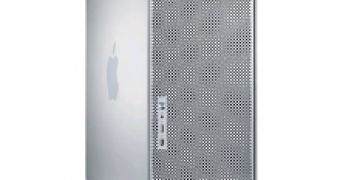Regardless of how fast the new Intel based Macs will be when they come out, we should remember that hardware is nothing without the software to run on it.
Remember the switch to OS X? In the beginning it was unconceivable to rely on just OS X. There weren't enough programs and many of those OS X programs around were buggy or having only part of the functionality of their classic counterparts. As time went by, the Classic has faded further and further into disuse and, today, we can safely skip Classic support and be sure that we will not be needing it.
Now imagine that same experience only this time it's not two different operating systems, but two different hardware platforms. The situation is similar enough, developers have been given the time and tools needed to make the switch, and Apple has been boasting the ease of rebuilding application code for use on the x86 architecture. If we draw from past experience we can be sure that there will be many developers that will take a very long time to bring out the new version of the software (one remembers how long it took Quark), that many companies will charge for the new application even though it is not actually a new version of the software, and that a few updates will be needed until the software is in perfect harmony with the new platform.
Of course, there will also be the 'old' OS X applications which will run using Rosetta. Like when running Classic support in OS X, Rosetta will not be able to run applications as fast as 'the real deal' but the impact in performance will depend greatly on the type of applications used.
This will surely not sit well with professionals who expect speed bumps with every new installment of the hardware. Also, many professionals will be bound hands and feet to the application they are using until there is a newer x86 version available. All in all, home users are clearly the initial target of the new Mactels since the programs they will use are less likely to be slowed by translation software like Rosetta, than would a complex 3D application like Maya, which might not even run at all.
All things considered, for those whose work relies on a Mac, the G5 will still be the platform of choice for some time now since Apple's professional line of computers will be the last of the PowerPC-based computers to make the move to Intel.

 14 DAY TRIAL //
14 DAY TRIAL //